Our approach to poultry, especially raising chickens is driven by our unwavering commitment to their welfare, sustainability, and the creation of a natural and enriching environment where they can thrive. We prioritize creating a healthy, happy, and harmonious space for our feathered friends.
Our flocks were NPIP certified and AI clean
TnF Farms raised chickens that were NPIP (National Poultry Improvement Plan) certified and AI (Avian Influenza) clean. NPIP certification ensures that our flock is free from significant poultry diseases. This is part of our voluntary commitment to maintaining a healthy and disease-resistant poultry population. Knowing that our chickens are AI clean provides an extra layer of reassurance, where avian influenza outbreaks can be a concern. This certification not only safeguards the well-being of our chickens but also demonstrates TnF Farms’ responsibility as a poultry keeper in Florida.
Room to really stretch their wings
Our chickens enjoyed daily access to multiple chicken runs inside an expansive 1-acre pen thoughtfully designed with their well-being in mind. This pen was rich with hardwoods, pine trees, pine needles, and leaves. This created a natural playground where they could scratch for bugs, forage for food, and engage in their natural behaviors. The ample tree cover provided shade but also adds to the overall natural ambiance. The woods also add protection from predators in the air.
We ensured a consistent supply of fresh water to keep our chickens well-hydrated. There were multiple chicken coops in the run separating chickens by breed placed throughout the pen to prevent cross-breeding. The shelters also offered them respite from inclement weather conditions and protection from predators that lurk in the night.
Plump, healthy hens are producers
Prioritizing the health of our poultry, we maintained a regular schedule of veterinary care to address their needs and ensure their well-being. We stuck to strict guidelines of ethical and sustainable farming practices, which meant absolutely no hormones and antibiotics only when necessary were administered to our flock.
To help our chickens maintain their health, we provided them with diatomaceous earth for dust baths. This natural substance helps control parasites and promotes healthy skin and feathers, all without resorting to chemical interventions.
But our care extended beyond the physical needs of our poultry; they also enjoyed regular interaction with people. Their curious nature makes them eager to engage with humans, and many of them have become accustomed to being held and petted. This fostered a friendly and sociable relationship between our birds and our farm family.
TnF Farms chickens lived in an environment that emphasizes their happiness, health, and well-being. Our approach to chicken farming reflects our commitment to sustainability, animal welfare, and the creation of a harmonious space where our feathered friends lead contented lives.
- Access to scratch for bugs, grubs and worms
- Wild life including frogs, small snakes and lizards and rodents caught in traps
- Vegetables and fruits year round, pumpkin and squash in the fall
- Crushed egg shells and oyster shells
- Supplemental high protein NON-GMO commercial crumble feed mixture
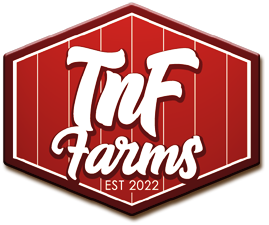
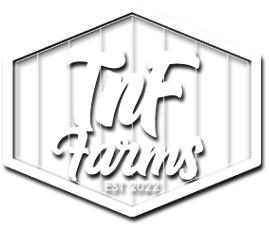
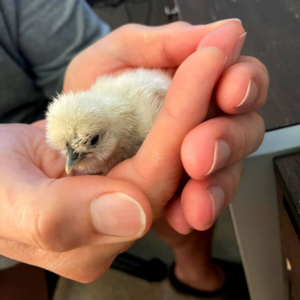
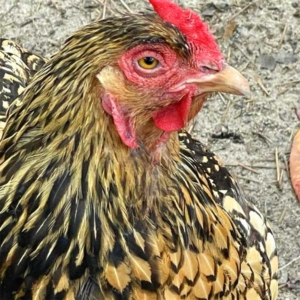
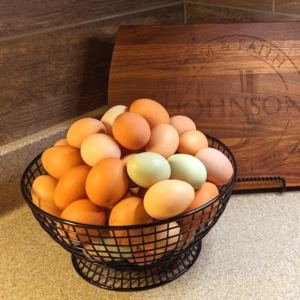
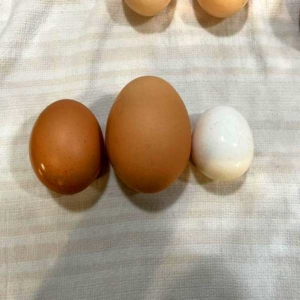
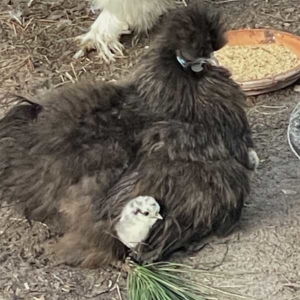
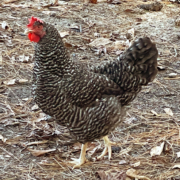
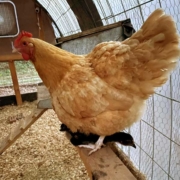
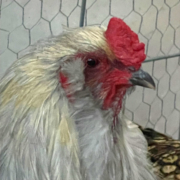
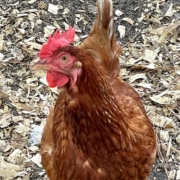
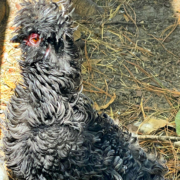
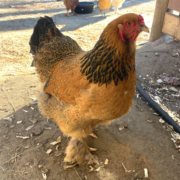
The Significance of NPIP Certification
/in Farm Animals, Homesteading, Poultry/by FaithIn poultry farming, there’s no question that the health and welfare of your flock are top priorities. Enter the significance of NPIP certification, a cornerstone of responsible poultry farming. NPIP, or the National Poultry Improvement Plan. This is a program initiated by the United States Department of Agriculture (USDA). The primary aim of monitoring and enhancing the overall health of poultry in the United States. Whether you’re an enthusiastic poultry hobbyist or a seasoned homesteader or farmer. This is essential to understand why obtaining NPIP certification for your chickens is a game-changer for both you and your flock.
A Tasty, Easy Breakfast
/in American Guinea Hogs, Foodies, Let's Do Something, Poultry/by FaithTim usually cooks breakfast. Before we called it an evening last night, I mentioned tomorrow morning, I’m making a favorite breakfast of mine. Today I’ll be making a country fried breakfast with most of the foods sourced from TnF Farms. I’m starting by frying up a package of our American Guinea hog bacon in an iron skillet. Now I have Tim hovering in the kitchen eating the bacon as fast as it comes out of my skillet.
Understanding Chicken Molting
/in Farm Animals, Homesteading, Poultry/by FaithIt’s an old wives’ tale, but a heavy molt means a bad winter is coming. As autumn sets in and leaves begin to fall, your chickens are also undergoing a seasonal change of their own: molting. Molting is a natural process in a chicken’s life cycle when they shed and regrow their feathers. Fall molting is particularly common among chickens, and understanding this phenomenon can help you provide the best care for your flock during this transitional period. In my post, I’ll discuss the reasons behind fall molting, the stages of molting, and how you can support your chickens during this time.